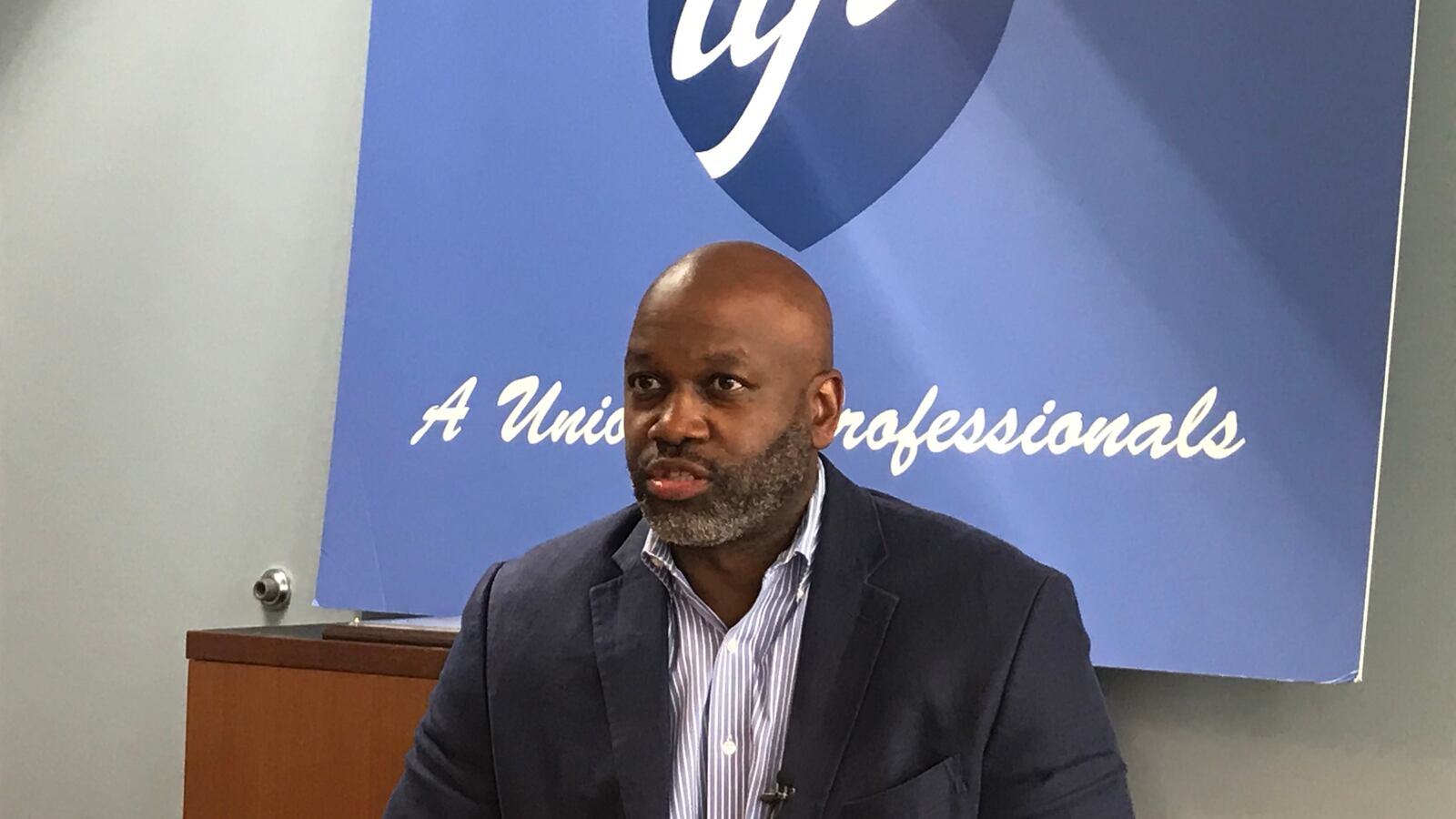The head of the Detroit teachers union wants the school district to tap into a reserve fund to provide pay increases for all of his members, and he’s taken that pitch to the commission that has some financial oversight over the district.
“We’re not asking for the entire $140 million,” Terrence Martin said, referring to the size of the district’s fund balance at the beginning of this school year. Instead, Martin, president of the Detroit Federation of Teachers, said during a media briefing Thursday at the union headquarters, “we’re asking for an amount that would keep that fund … very healthy.”
Martin declined to specify how much of the fund the union wants the district to tap. The goal, he said, is to address the fact that teachers are today making less money than they did 10 to 15 years ago, with those at the top of the pay scale being affected the most.
Dipping into the reserve fund, though, could be a risky move for the Detroit Public Schools Community District, given there’s no guarantee the fund will be as healthy in years to come.
“Our fund balance is one-time funding,” Superintendent Nikolai Vitti said in a statement. “Once used, it is gone. It is not re-occurring revenue. This means that if we spend it on salaries we create a funding hole the following year.”
It would also repeat the “financial sins of the district’s past,” Vitti said.
“We understand that tapping into that one-time money isn’t a long-term strategy to really fixing this issue,” said Martin, whose members demonstrated for raises at last week’s school board meeting. “We know it’s going to take a consistent increase in student growth. It’s going to take some actions from Lansing to fund schools appropriately.”
This week Martin took his pitch to the Detroit Financial Review Commission, the body that takes action on all major contracts, including any union contracts. That body is responsible for looking out for the financial health of the district.
Vitti said in his statement that the district will use the fund balance for one-time expenses such as technology for students and school building repairs. The latter is crucial in a district with more than $500 million in needed facility repairs.
He said he and the school board are committed to make Detroit teachers the highest paid teachers in the state and nation.
“We will do everything we can to accomplish this commitment while being responsible stewards to taxpayers and strategically advocating for statewide policy changes that abolish inequitable funding for districts such as DPSCD.”
In his statement Vitti noted that the district has raised teacher salaries in the last two years. He said the district is reworking its proposal to address the union’s request to provide traditional step increases to teachers. “We are committed to reaching an agreement as soon as possible so teachers can receive another pay increase before next school year.”
Martin said the district is losing too many teachers to surrounding districts where they can get better pay. Combined with retirements, he projects the district will have 300 teacher vacancies before the beginning of the next school year.
Those who have remained in the district are loyal and deserve to be compensated fairly, he said.
“The folks who have suffered the most are the people we have to make sure we make whole,” Martin said.
From 2009 to 2016, when the district was under the control of a state-appointed emergency manager, teachers had their pay cut by 10 percent one year and loaned the district money in another year. That sum was to be returned to the teachers when they exited the district. Last year, though, Vitti brokered a deal with the union to return that money to teachers sooner.
Martin said he hopes to be able to speak to the financial review commission again, and to any person or group that has some influence.
“It doesn’t seem like there’s an unwillingness of spending money. There seems to be a difference in how that money is spent,” he said.
Vitti, meanwhile, has urged teachers and others to advocate for more equitable funding in Lansing. He reiterated that in an opinion piece Thursday in the Detroit Free Press, saying that on average, school districts in some wealthier suburbs are generating far more revenue than does the Detroit school district.
“This allows these districts and countless others to offer teacher salaries and school facilities that are superior to ours,” Vitti wrote.

